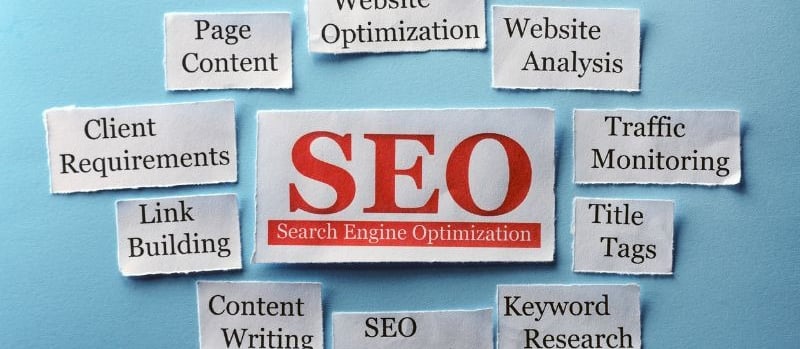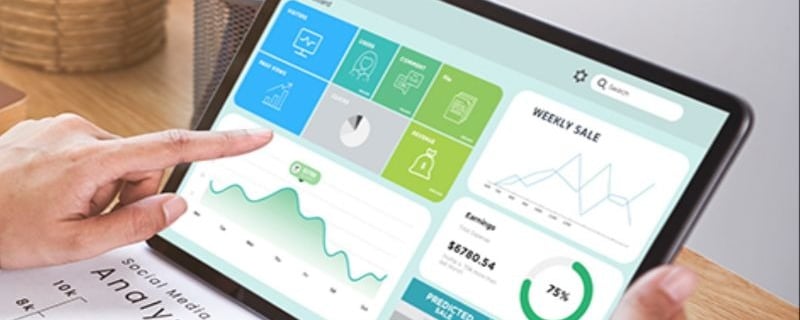Digital Marketing Tips for Small Businesses 2025


Navigating the digital landscape can feel overwhelming for small businesses, but it's more critical than ever in 2025.
This guide delivers actionable digital marketing tips designed specifically for lean operations and tight budgets.
We'll explore essential small business marketing trends 2025, providing online marketing tips for small businesses that cover everything from low-budget digital marketing tips and local business digital marketing strategies to mastering social media and SEO.
Whether you're launching a startup or looking to accelerate growth, these beginner marketing strategies for small business will equip you with the knowledge and affordable marketing tools for small business needed to succeed online in the coming year.
Let's demystify how to grow a small business online in 2025 and turn digital channels into your most powerful growth engines.
Digital Marketing Tips for Small Businesses: Your 2025 Growth Playbook
Remember the days when a Yellow Pages ad and a few flyers were enough? Those times feel like ancient history now.
In 2025, the digital world isn't just a place to be; it's the place where connections are made, trust is built, and sales are closed, especially for small businesses competing for attention.
If you're feeling adrift in the sea of algorithms, SEO jargon, and social media madness, take a deep breath. You're in the right place.
As someone who's spent years helping businesses just like yours find their footing online, I know the challenges – limited time, tight budgets, and the pressure to get results.
But I also know the incredible potential. Let’s cut through the noise and focus on effective, practical digital marketing tips that will make a real difference for your business this year and beyond.
Why Digital Marketing is Essential for Small Businesses in 2025
Let's get straight to the point: ignoring digital marketing in 2025 is like setting up shop on a deserted island. Your customers are online – searching for solutions, comparing options, reading reviews, and engaging with brands. If you're not there, you're invisible.
Here’s why embracing digital marketing strategies for startups and established small businesses is non-negotiable:
Unparalleled Reach: Unlike traditional methods limited by geography, digital marketing lets you reach potential customers across the street or across the globe. You can precisely target demographics, interests, and behaviors, ensuring your message lands in front of the right eyes.
Cost-Effectiveness: Many powerful low budget digital marketing tips cost significantly less than traditional advertising. Think content creation, basic SEO, social media engagement – these often require more time than money initially, offering a high ROI when done right. This answers the common question: "how can I market my small business online?" even with limited funds.
Measurable Results: Don't worry guessing if your newspaper ad worked. Digital marketing provides concrete data. You can track website visits, click-through rates, conversion rates, social media engagement, and more. This allows you to see exactly what's working, what's not, and where to focus your efforts for maximum impact. This is crucial for understanding small business marketing trends 2025 and adapting quickly.
Level Playing Field: Digital platforms allow small businesses to compete effectively with larger corporations. A compelling brand story, valuable content, and smart targeting can capture attention and build loyalty, regardless of your company's size.
Building Relationships & Trust: It's not just about selling; it's about connecting. Engaging on social media, responding to reviews, and providing helpful content through email marketing builds trust and turns customers into loyal advocates. This directly addresses how to attract customers online for small business.
The 2025 marketing trends for small business point towards increased personalization, the continued rise of video content, AI-powered insights, and an even greater emphasis on authentic community building. Getting your digital foundations right now is key to capitalizing on these shifts.
5 Low-Cost Digital Marketing Strategies to Try First
Feeling overwhelmed? Don't try to do everything at once. Start with these foundational, low budget digital marketing tips that offer excellent bang for your buck:
1. Content Marketing: Become an Authority (Without Breaking the Bank)
What it is: Creating and sharing valuable, relevant content (blog posts, guides, infographics, checklists) to attract and retain a clearly defined audience.
Why it works: It positions you as an expert, builds trust, improves SEO, and provides assets to share across other channels. This is a cornerstone of any solid digital marketing strategy for small business 2025.
Getting Started (Low Budget):
Start a Blog: Use your website platform (WordPress, Squarespace, Shopify all have built-in blogs). Answer common customer questions, share industry insights, or provide "how-to" guides related to your products/services. Focus on topics your ideal customer is searching for.
Repurpose Content: Turn a blog post into a series of social media updates, a simple infographic (using free tools like Canva), or a short video script.
Focus on Quality over Quantity: One well-researched, genuinely helpful piece of content is better than five mediocre ones.
2. Local SEO: Dominate Your Neighborhood Search Results
What it is: Optimizing your online presence to attract more business from relevant local searches (e.g., "bakery near me," "plumber in [Your Town]").
Why it works: Essential for brick-and-mortar businesses or service providers targeting a specific geographic area. It drives highly relevant traffic and footfall. This is prime local business digital marketing.
Getting Started (Low Budget):
Claim & Optimize Google Business Profile (GBP): This is arguably the most crucial free step. Fill out every section completely: accurate Name, Address, Phone (NAP), business hours, categories, services/products, photos, and descriptions. Encourage customer reviews! These are vital Google My Business optimization tips 2025.
Local Keywords: Include your city/region naturally in your website content, page titles, and descriptions (e.g., "Artisan Bread baked fresh in [Your Town]").
Online Directories (Citations): Ensure your business information is consistent across relevant online directories (Yelp, local chamber of commerce, industry-specific sites).
3. Email Marketing Foundations: Build Your Owned Audience
What it is: Collecting email addresses from interested prospects and customers and sending them targeted communications.
Why it works: You own your email list, unlike social media followings subject to algorithm changes. It's incredibly effective for nurturing leads and driving repeat business. These email marketing tips for beginners 2025 are fundamental.
Getting Started (Low Budget):
Choose a Platform: Many offer free starter plans (e.g., Mailchimp, Brevo).
Collect Emails Ethically: Offer a valuable incentive (a discount, a free guide, exclusive content) in exchange for signing up via a form on your website or at your physical location. Never buy lists.
Start Simple: Send a regular newsletter with updates, tips, or special offers. Consistency is key.
4. Strategic Social Media Engagement: Connect Where Your Customers Are
What it is: Using social media platforms to build brand awareness, engage with your audience, and drive traffic/sales.
Why it works: Allows for direct interaction, community building, and targeted advertising (even on a small budget).
Getting Started (Low Budget):
Don't Be Everywhere: Choose 1-2 platforms where your target audience spends the most time (e.g., Instagram for visual brands, Facebook for local community focus, LinkedIn for B2B). These are key social media tips for small business 2025.
Focus on Engagement: Don't just broadcast. Ask questions, run polls, respond to comments and messages promptly, share user-generated content.
Consistent Posting: Aim for quality and consistency rather than posting multiple times a day with nothing valuable to say.
5. Leverage Online Reviews & Testimonials: Build Social Proof
What it is: Actively encouraging and showcasing positive customer feedback.
Why it works: Reviews are incredibly influential in purchasing decisions. Positive reviews build trust and credibility, directly impacting how to attract customers online for small business.
Getting Started (Low Budget):
Ask! Politely ask satisfied customers to leave a review on Google, Yelp, or relevant industry sites. Make it easy for them with a direct link.
Showcase Reviews: Feature positive testimonials prominently on your website (homepage, dedicated reviews page, product pages).
Respond to All Reviews: Thank positive reviewers and address negative reviews professionally and constructively. This shows you care.
These five strategies form a solid foundation for beginner marketing strategies for small business and offer tangible results without requiring a massive upfront investment. They directly address the challenge of small business marketing without spending money (or very little) initially.
How to Master Social Media for Local Customers
Now for so many small businesses, particularly those with a physical presence, mastering local business digital marketing on social media is key. It’s about building a community, not just collecting likes.
Know Your Platforms: Is your audience scrolling through visual feeds on Instagram (Instagram marketing tips for small brands)? Are they engaging in local Facebook groups? Understanding this dictates where you invest your time.
Content That Connects Locally:
Behind-the-Scenes: Show the faces behind the business, the process of making your product, or a day in the life. Authenticity resonates.
Local Events & Partnerships: Promote or participate in local events. Tag other local businesses.
User-Generated Content (UGC): Encourage customers to share photos using your product or visiting your location (perhaps with a branded hashtag) and reshare their posts (with permission!).
Run Local Contests/Giveaways: Partner with another local business for a joint giveaway to cross-promote.
Engage Authentically: Respond to comments and messages quickly and personally. Don't use generic bot responses. Ask questions to spark conversation.
Hyper-Local Targeting (Ads): Even with a small budget, social media advertising on a budget can be effective. Platforms like Facebook allow you to target ads specifically to users within a certain radius of your business. Learning how to run Facebook ads for small business focusing on local reach can drive immediate foot traffic.
Simple SEO Tweaks to Rank Higher in 2025
Search Engine Optimization (SEO) sounds technical, but many impactful SEO tips for small business websites are surprisingly straightforward.
Think of it as making your website clear and helpful for both search engines and human visitors. These simple SEO tips for small websites can make a big difference:
Keyword Research Basics: Understand the terms potential customers use to search for businesses like yours (use free tools like Google Keyword Planner suggestions or simply type queries into Google and see what auto-suggests). Include these keywords naturally in your website content.
On-Page Optimization:
Page Titles & Meta Descriptions: Each page should have a unique, descriptive title tag (ideally including a primary keyword) and a compelling meta description (the snippet shown in search results) that encourages clicks.
Headings (H1, H2, H3): Structure your content with clear headings. Your main page title should be an H1. Use H2s and H3s for subtopics, incorporating relevant keywords naturally (like we're doing in this article!).
Content Quality: Write clear, informative, and engaging content that answers user questions thoroughly. Google rewards helpful content.
Image Alt Text: Describe your images using alt text. This helps search engines understand the image content and improves accessibility. Include keywords where relevant (e.g., "handmade leather wallet by [Your Brand Name]").
Mobile-Friendliness: Your website must look and work great on smartphones and tablets. Google prioritizes mobile-friendly sites. Use Google's Mobile-Friendly Test tool to check yours.
Page Speed: Slow-loading websites frustrate users and hurt rankings. Optimize image sizes, leverage browser caching, and consider a good hosting provider. Use Google's PageSpeed Insights tool for recommendations.
Local SEO Reinforcement: Ensure your Name, Address, and Phone number (NAP) are consistent across your website and all online directories (GMB, Yelp, etc.). Embed a Google Map on your contact page. These are crucial local SEO strategies for small business in 2025 and beyond.
Internal Linking: Link relevant pages on your website together. For example, link from a blog post about a service to your main service page. This helps search engines understand your site structure and keeps users engaged longer. [Link to relevant internal article on Website Structure Best Practices]
Don't expect overnight results with SEO, but consistent effort pays off significantly in the long run, driving organic (free) traffic. Avoid digital marketing mistakes small businesses make, like keyword stuffing or ignoring technical SEO basics.
Email Marketing: The Best Way to Retain Customers
While acquiring new customers is important, retaining existing ones is often more profitable. Email marketing is your superpower here. Why? Because people on your list have explicitly opted-in to hear from you. These email marketing tips for beginners is focus on nurturing those relationships you have been able to build over the time:
Build Your List Strategically:
Lead Magnets: Offer something genuinely valuable in exchange for an email address – a checklist, an ebook, a discount code, access to a webinar. Tailor it to your audience's needs.
Website Pop-ups/Forms: Use clear calls-to-action on your website. Make sign-up easy.
In-Person Sign-ups: If you have a physical location, collect emails at the point of sale (with permission!).
Segment Your List: As your list grows, segment it based on interests, purchase history, or engagement level. This allows you to send more targeted and relevant messages, improving open and click-through rates. Even basic segmentation (e.g., new subscribers vs. repeat customers) helps.
Content That Provides Value:
Exclusive Offers & Early Access: Make subscribers feel special.
Helpful Tips & Insights: Share expertise related to your industry or products.
Company Updates & Behind-the-Scenes: Build connection and transparency.
Personalized Recommendations: Based on past purchases or browsing history (more advanced, but powerful).
Automation Essentials: Set up simple marketing automation for small businesses flows:
Welcome Series: Automatically send a series of introductory emails to new subscribers, welcoming them and highlighting key information or offers.
Abandoned Cart Reminders: For e-commerce businesses, gently remind customers about items left in their cart.
Consistency & Testing: Send emails regularly (but don't spam!) and pay attention to your analytics. Test different subject lines, send times, and content formats to see what resonates best.
For so long email marketing has consistently delivers one of the highest ROIs among digital marketing strategies for startups and small businesses because it focuses on building long-term customer relationships.
Free vs. Paid Tools: What’s Worth the Investment?
The digital marketing world is full of tools promising amazing results. But with a limited budget, how do you decide what's essential? Here’s a breakdown of affordable marketing tools for small business options:
The digital marketing world is full of tools promising amazing results. But with a limited budget, how do you decide what's essential? Here’s a breakdown of affordable marketing tool options, starting with free or freemium choices and suggesting when you might consider paid upgrades:
Website Analytics: Understanding your website visitors is crucial. Start with the essentials: Google Analytics (GA4) and Google Search Console. Both are free and provide vital data on traffic sources, user behavior, and search performance. As you grow, you might explore Premium Analytics Suites (like Matomo Cloud) for potentially deeper insights, more customization options, or enhanced privacy controls.
Search Engine Optimization (SEO): To get found on Google, begin with free tools. Google Keyword Planner helps with keyword ideas, Google Business Profile is vital for local SEO, and Google Search Console monitors your site's health in search results. Free tools from providers like Ahrefs also offer valuable insights. When you need more power, paid platforms like SEMrush, Ahrefs (full suite), or Moz Pro offer comprehensive keyword research, competitor analysis, site auditing, and rank tracking.
Social Media Management: Managing multiple social platforms can be time-consuming. Free plans from tools like Buffer or Hootsuite, along with the native Meta Business Suite (for Facebook & Instagram), allow basic scheduling and posting. Investing in paid plans (from Buffer, Hootsuite, Sprout Social, etc.) typically unlocks advanced scheduling features, better analytics, team collaboration tools, and social listening capabilities.
Email Marketing: Building an email list is key for nurturing leads. Free tiers from platforms like Mailchimp or Brevo are excellent starting points for basic campaigns. Paid plans usually offer advanced automation sequences, better audience segmentation, integrated landing pages, and potentially improved deliverability, making platforms like ActiveCampaign or ConvertKit worth considering as you scale.
Design: You don't need to be a graphic designer to create professional-looking visuals. Canva and Adobe Express offer robust free plans with plenty of templates and tools. Upgrading to Canva Pro or the full Adobe Creative Cloud suite gives you access to significantly more templates, vast stock photo libraries, brand kit features for consistency, and more advanced design functionalities.
Customer Relationship Management (CRM): Keeping track of customer interactions is vital. You can start effectively with the HubSpot CRM free tier, which is remarkably powerful, or even simple spreadsheets. As your customer base grows, paid CRM systems like HubSpot's paid tiers, Salesforce, or Zoho CRM provide centralized customer data, sales pipeline tracking, and enhanced automation.
AI Tools: Artificial intelligence can significantly boost marketing productivity. Explore free options like ChatGPT (free version), Google Bard (now Gemini), and features within tools like Canva's Magic Write for content generation assistance.
Paid tools like Jasper.ai, Copy.ai, and various specialized AI platforms offer more advanced capabilities for content creation, data analysis, and ad copy optimization. It's worth regularly checking for updated lists of the best free AI tools for digital marketing (e.g., searching "free AI tools for digital marketing 2025") as this field evolves rapidly.
Key Takeaway:
Don't feel pressured to pay for tools immediately. Start with the free options! Master the basics with essential platforms like Google Analytics, Google Business Profile, and a free email marketing plan.
These form a powerful foundation and represent some of the best free marketing platforms available for small businesses. You can always strategically invest in paid tools as your needs become more complex and your budget allows.
This format breaks down the information by category using paragraphs and bullet points, making it easier to read and integrate into a standard webpage without needing a table structure.
When to Consider Paid Tools:
When you're spending too much manual time on tasks that could be automated (e.g., social media scheduling, email sequences).
When you need more advanced features to gain a competitive edge (e.g., in-depth SEO competitor analysis, complex email automation).
When your team grows and needs better collaboration tools.
When free plan limitations hinder your growth (e.g., email list size limits).
Always evaluate the ROI. Will a paid tool save you enough time or generate enough additional revenue to justify the cost? Often, investing strategically in CRM tools for small business growth or marketing automation for small businesses pays dividends.
Explore the best small business marketing apps that fit your specific needs and workflow.
Conclusion: Your Digital Future Starts Now
Embarking on digital marketing in 2025 doesn't have to be a daunting, budget-draining exercise. By focusing on these core digital marketing tips, you can build a powerful online presence that attracts, engages, and retains customers. Remember the essentials:
Be Present: Understand why digital is non-negotiable.
Start Smart: Implement low budget digital marketing tips like content, local SEO, email, social, and reviews first.
Connect Locally: Master social media for your community.
Get Found: Apply simple SEO tips for small business websites.
Nurture Relationships: Leverage email marketing for retention.
Choose Tools Wisely: Start free, invest strategically based on ROI.
The answer to "what is the best marketing method for small business?" is often a combination of these strategies, tailored to your specific audience and goals. The key is to start, be consistent, learn from your results, and adapt.
Don't let fear of the unknown or past digital marketing mistakes small businesses make hold you back. The digital door is wide open for small businesses willing to step through it. Take that first step today.
Need more tailored advice? [Link to your Contact Page or Consultation Booking] Check out our guide on [Link to relevant internal article on Creating a Marketing Plan] for more resources. For a deeper dive into SEO trends, Search Engine Land is an excellent external resource.
What's the first digital marketing tip you're going to implement? Share your thoughts in the comments below!








